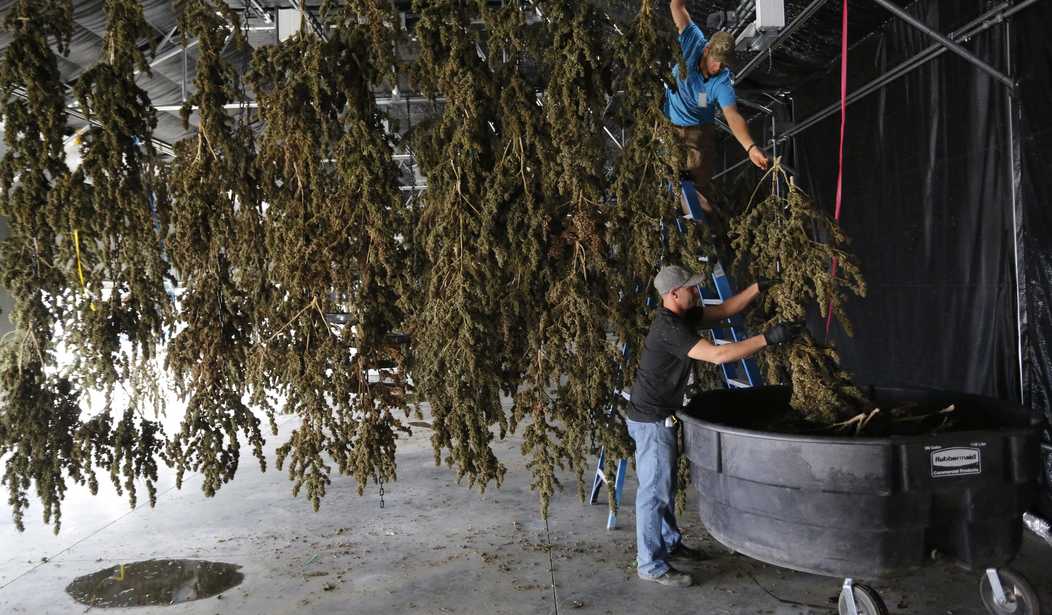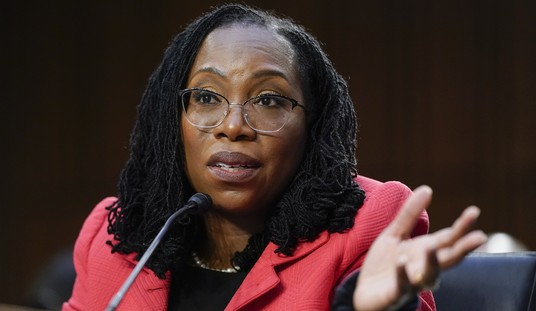Larry Bird pointed to an editorial in the Colorado Springs Gazette as he tried to warn his fellow Hesperia, Calif., city council members that expanding the municipality’s cannabis delivery zone would only increase the “ease of accessibility” to marijuana and “open a Pandora’s box.”
“My concern is that it’s going to invade our schools, homes and community,” the Hesperia Daily Press reported Bird said.
A politician in Colorado, Republican Tom Tancredo, who may have blown his bid to become governor in 2014 because he backed legal pot, said he’d gladly take the same stand again.
But Kentucky Gov. Matt Bevin (R) vowed this fall that Colorado’s experiment with legalized weed has proven marijuana should never be legal in his state.
In Hesperia, Bird failed. The city council approved an expansion of the city’s marijuana delivery zone.
“The people that are smoking will continue to smoke and those that eat will continue to eat,” said Hesperia Mayor Paul Russ, who is being treated with medicinal marijuana while waiting for a kidney and liver transplant.
Bird argued he didn’t want to take away anyone’s right to use marijuana. He was only worried that Hesperia would suffer the same legal weed woes that the Gazette editorial highlighted on the fifth anniversary of legal weed in Colorado.
Under the headline “The sad anniversary of Big Commercial Pot in Colorado,” the Gazette’s editorial board described the state’s legalization of marijuana as “an embarrassing cautionary tale.”
It includes more than a doubling in the number of fatal accidents involving drivers who tested positive for marijuana.
Along with five years of legal weed, Colorado has also seen its homeless population swell to a level that is among the highest in America. The Gazette editorial board sees a link between people living on the street and the availability of free weed because homeless shelter directors said substance abusers move to Colorado because it’s easier to score a bag of weed.
More kids than ever are getting high inside Colorado’s K-12 schools, the Gazette also reported. Drug violations reported by the state’s public schools increased 45 percent since the legalization of pot, according to a 2016 Rocky Mountain PBS investigation.
“When I grew up, it was horrible if you got caught with pot,” said teacher Matt Murphy. “Now there are little green medical signs everywhere. It seems healthy. We’re at the front lines of this huge shift where kids think it’s OK.”
The PBS investigation also highlighted the case of Marc Bullard, a 23-year-old from Texas who moved to Denver after graduating from Southern Methodist University. He landed in a sea of weed.
“His diary describes an addiction to marijuana dabbing,” Rocky Mountain PBS reported. “He wrote, ‘I found out I was dabbing too much, which I already knew…. Apparently if you overdo it, you can get almost like poison and experience some negative effects.’”
Marc Bullard committed suicide.
On top of all of that, something stinks in Colorado Springs.
“Visitors to Colorado remark about a new agricultural smell, the wafting odor of pot as they drive near warehouse grow operations along Denver freeways,” the Gazette editorial read.
“Residential neighborhoods throughout Colorado Springs reek of marijuana, as producers fill rental homes with plants,” the Gazette added.
However, Dr. Larry Wolk, Colorado’s chief medical officer, told a CBC talk show host the state had “not experienced any significant issue as a result of legalization.”
“Even when marijuana is not legal, one in four adults and one in five kids are probably using on a somewhat regular basis. What we’ve found since legalization is that those numbers haven’t really changed,” Wolk said.
Tancredo, who thinks a Denver Post report of his support for legalizing weed in Colorado cost him the 2014 Colorado GOP gubernatorial nomination, is running for governor again – and still backs legal pot.
“There have been bumps in the road, we know that. There will be more, we know that,” Tancredo said. “The great thing is, this little experiment in liberty is working and I am happy to be a part of it.”
Dr. Daniel Vigil of the Marijuana Health Monitoring and Research Program at the Colorado Department of Public Health, said those “bumps in the road” included “rare deaths.”
The marijuana fatalities included “one following overconsumption, paranoia and falling off a balcony,” Vigil told Insider Louisville. Another death involved “unintentional ingestion of a large dose of THC in a candy bar.”
Vigil said new regulations and policies are needed to prevent marijuana overdoses.
Speaking of Colorado’s legal weed experience, David Bienenstock, a former editor of the marijuana-promoting publication High Times, declared that “legalizing and regulating cannabis has made for a safer and more just society.”
But that isn’t good enough for Kentucky’s Matt Bevin.
“You have law enforcement people in emergency rooms being overrun by problems. You have homelessness spiking in that state,” Bevin said. “It has not been good for that state, and states like us would be wise to look at that and realize that’s a sucker’s bet.”









Join the conversation as a VIP Member